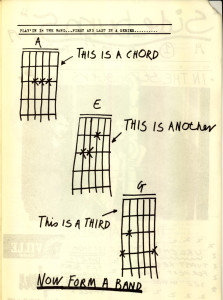Here we are now going to the west side
Weapons in hand as we go for a ride
Some may come and some may stay
Watching out for a sunny day where there’sLove and darkness and my sidearm
Hey, elan– “South Side” from the Play album by Moby (1999)
Gotham Gal made some observations today about yesterday’s massacre in the U.S.
Note that we now write “yesterday’s massacre” and not “the massacre” because we now have so many massacres in the U.S., we have to be specific about which one we are referring to.
In reply to a comment I made, GG asked, “How do we think about shifting this tide?”
This was my response:
How can a disorganized majority counter a highly organized minority with a big profile and deep pockets? By organizing, fundraising, and being specific. The NRA knows exactly what it wants. We must know exactly what we want and raise the money to pressure the electeds to make it happen.
Everyone knows exactly who to point to when it comes to gun owner advocacy. Who do we point to when it comes to gun control advocacy? We need to know that, too.
There are basically two organizations, the Coalition to Stop Gun Violence, and the Brady Campaign to Prevent Gun Violence. As a product person, I see a need for one marquee organization. And it needs a name that sounds permanent. “Stop” and “Prevent” are things that we don’t have to do once they’re accomplished. The NRA never stops. We need a Seth Godin to help us come up with something more inspiring, more bonding, more permanent.
We need to understand how to market to our ‘customer’ the way that the NRA understands how to market to theirs.
We also cannot ignore the mental health care aspect. Lack of access to mental health care and easy access to guns are a ‘perfect storm’, and I don’t think addressing one of these aspects alone will get us where we need to go.
Activist movements have worked complex issues like this before, so I guess we need to take a look at what succeeded for them.
It isn’t just high profile massacres that are the problem, either. The number of human beings who are shot to death every day in the U.S. is SHAMEFUL. We must seem to be a barbaric society to the rest of the world.
This movement needs a leader, I think. It needs a full-time evangelist. It needs a brand. Who will take the lead? How do we find that person and empower her to become the voice of our movement we need so badly?









